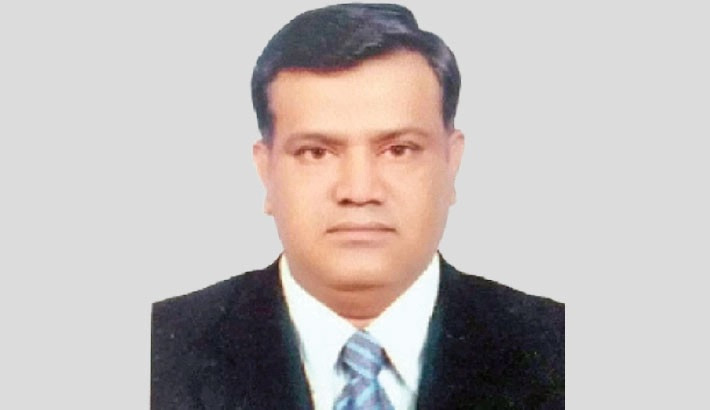
Dr. Muhammad Yunus, hailed globally as a pioneer of microfinance and recipient of the Nobel Peace Prize, has recently found himself embroiled in a series of controversies that have tarnished his once-sterling reputation. While his work in poverty alleviation has been widely celebrated, recent events have cast doubt on his integrity, raising serious allegations of misconduct and malpractice.
At the centre of the controversy are Dr. Yunus's alleged criminal activities, ranging from financial irregularities to ethical breaches. These accusations paint a troubling picture of a man once revered as a beacon of hope for the impoverished.
One of the most damning allegations against Dr. Yunus revolves around his involvement with Grameen Telecom and Grameen Kalyan. Despite claims of innocence, Dr. Yunus has reportedly paid a staggering sum of 228 crore 3 lakh 83 thousand 2 hundred 38 taka to the court, suggesting a willingness to settle rather than face scrutiny in a trial. This substantial payment has prompted speculation regarding the depth of his involvement and the credibility of his claims of innocence.
Furthermore, Dr. Yunus's recent press conference, where he accused pro-government activists of attempting to seize control of Grameen Telecom and Grameen Kalyan, has been met with scepticism. It is alleged that this press conference was merely another attempt to deflect attention away from his own misdeeds and cast himself as a victim of political persecution.
A closer examination of the legal framework surrounding Grameen Telecom and Grameen Kalyan reveals a convoluted saga of deceit and manipulation. Dr. Yunus's purported disregard for the organizations' constitutions, particularly concerning the appointment of chairpersons and directors, suggests a blatant disregard for established legal norms. Dr Yunus took Tk4.47 billion for establishing Grameen Kalyan and Tk240 million for Grameen Telecom from Grameen Bank without returning any interest or dividends during the 1990s.
Grameen Bank, according to the constitution of these two companies, holds the authority to nominate chairpersons for these organizations. Dr. Yunus was appointed as the chairperson of these companies with approval from Grameen Bank. He held the position as a representative of Grameen Bank, not because of his Nobel laureate status.
Although Grameen Bank is now nominating others for the chairmanship, Dr. Yunus is unwilling to relinquish his position. Such behaviour not only undermines the integrity of these institutions but also calls into question Dr. Yunus's commitment to transparency and accountability. Just because he won a noble peace prize does not mean that he is above the law.
The allegations against Dr. Yunus extend beyond financial impropriety to encompass allegations of bribery and embezzlement. The Anti-Corruption Commission (ACC) has reportedly filed a case against Dr. Yunus, alleging that he bribed lawyers and labour leaders to embezzle funds intended for Grameen Telecom employees. These employees initiated legal action against Dr. Yunus, asserting their entitlement to a portion of the profits.
According to the Labour Law of 2006, every company is obligated to allocate 5% of its profits to its employees. Dr. Yunus, however, contested this requirement by asserting that Grameen Telecom operated as a non-profit organization. Contrary to this claim, Grameen Telecom possesses a substantial 34.2% stake in Grameenphone, a company yielding nearly a billion taka in annual profits. Initially, Dr. Yunus staunchly refused to remunerate the employees, opting instead to engage in a legal battle.
However, recognizing the precariousness of his legal position and the likelihood of an unfavourable court ruling, he opted to settle the dispute extrajudicially. In doing so, he allegedly employed financial inducements to sway labour leaders and legal representatives, effectively halting further litigation by the employees. This shocking revelation paints a damning picture of a man once hailed as a champion of the poor.
Moreover, Dr. Yunus's purported deviation from the Grameen Bank ordinance of 1983, which prohibits the creation of similar organizations under the Grameen name, raises serious ethical concerns. By flouting this ordinance, Dr. Yunus has not only violated the law but also betrayed the trust of the very people he claimed to serve.
Dr. Yunus relied on foreign aid and marketed poverty to attract international donations. Transitioning into politics, he sought support from the military. He directed aid towards multiple trusts primarily benefiting himself and his family.
While charitable trusts typically enjoy tax exemptions for serving the public, Dr. Yunus attempted to exploit this status for trusts serving his personal interests.
The magnitude of Dr. Yunus's alleged misconduct cannot be overstated. His actions have not only tarnished his own reputation but have also cast a shadow over the entire microfinance industry. As a Nobel laureate, Dr. Yunus was expected to uphold the highest standards of integrity and ethical conduct. Instead, he stands accused of betraying those very principles.
To sum up, the accusations against Dr. Yunus show a troubling side of a man once seen as a hero for the poor. He is accused of many wrongdoings, from financial problems to breaking trust, which have hurt his good reputation. As the legal process goes on, it is crucial for Dr. Yunus to face consequences for what he is accused of, and for justice to be done for those harmed by his actions. Only then can people start trusting the microfinance industry again. This justice is crucial to ensure that no one, regardless of their stature, will ever again dare to disregard the rights of workers in the future.
__________________________________
The writer is a freelance journalist

